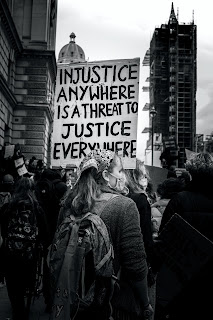Day 49 – Decolonization
Day 49 – Decolonization
Photo by Chris Ainsworth on Unsplash
“Decolonization” is not a political term as some expect, and thus shy away from its use and understanding; rather it is about liberating the mind and behavior of a counselee within the context of exploring (1) the process of who they are at this time, (2) how they have become the person they are, and (3) why there may be dissatisfaction and problems, pain, and suffering in their life. “Decolonization” constitutes an effort to free a counselee from the sources of their imposed socialization that ultimately deny them the opportunity to explore their roots and to build their character and person within the historical context of their native cultural traditions.
De-colonization recognizes that the distribution of “power” is part of every relationship, and that this distribution can be asymmetrical. (Marsella, 2015)
I found this description of “decolonization” in “multicultural” counseling interesting. The process of (1) exploring who I am at this time, (2) exploring how I became the person I am, and (3) exploring why there is dissatisfaction, problems, pain and suffering in my life, seems a lifelong journey! It’s interesting to think that freeing myself from the sources of “imposed socialization” that denies me the opportunity to explore my roots and build my character within the historical context of my native traditions – is part of decolonization.
Colonization has a lot to do with the economic and social disruption and the creation of the Puerto Rican diaspora. How much am I connected to the “historical context of my native cultural traditions?” How different would my life have been had my family’s roots been celebrated and cherished vs. denied and eschewed in favor of “the American dream?” How different would my worldview be if I spoke Spanish as a native language – rather than as a second-language learner?
There are some phrases and parts of the language that feel like second nature to me...In Spanish, if you want to say “I forgot” you can say “se me olvidó” which literally translates into - it forgot itself to me. That different sense of agency which is built into the language seems super important – and it makes me wonder how that difference lives in my body!
Marsella, A. J. (2015). Decolonization of mind and behavior: A responsibility of professional counselors [Forward]. In R. D. Goodman & P. C. Gorski, (Eds.). Decolonizing “Multicultural” Counseling through Social Justice (International and Cultural Psychology). Springer New York. Kindle Edition.



Comments